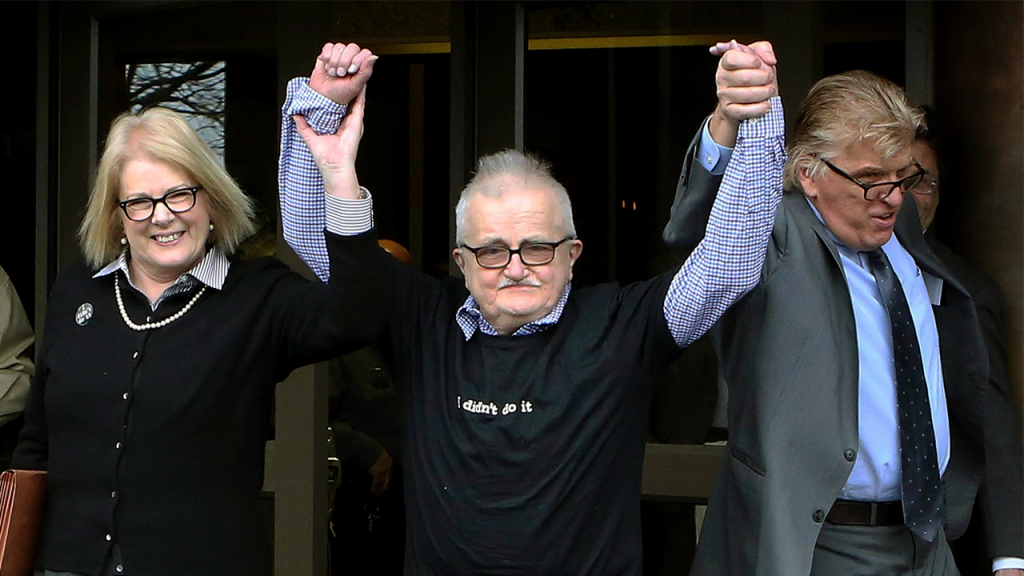The state of Connecticut is poised to award nearly $5.9 million to the family of Richard Lapointe, a man with Dandy-Walker syndrome, a rare brain malformation, who was wrongfully imprisoned for over two decades for the 1987 murder and rape of his wife’s grandmother, Bernice Martin. Lapointe, who consistently maintained his innocence, was convicted in 1992 based largely on confessions his lawyers argued were coerced and influenced by his disability. Although he was released in 2015 after the state Supreme Court overturned his conviction due to prosecutorial misconduct, he was never formally declared innocent. The settlement, reached after years of legal battles, represents a partial acknowledgment of the state’s error, though Lapointe’s attorney emphasizes that no amount of money can truly compensate for the injustice he suffered. The settlement still requires legislative approval.
Lapointe’s ordeal began with the discovery of Martin’s body in her burning apartment. He became a suspect and, during a prolonged interrogation, confessed to the crime. However, his lawyers argued that his confessions were unreliable due to his cognitive impairment and the coercive nature of the interrogation. The state’s case ultimately crumbled when the Supreme Court determined that the prosecution had withheld exculpatory evidence, specifically police notes that could have bolstered Lapointe’s alibi. Subsequent DNA testing further weakened the case against him, leading to the dismissal of all charges.
The $5.9 million settlement, while substantial, represents just a fraction of the time and opportunities stolen from Lapointe. He spent his prime years incarcerated for a crime he did not commit, separated from his family and enduring the stigma of being labeled a murderer and rapist. Upon his release, he was a free man but also a broken one, his health declining as he battled dementia and, eventually, COVID-19, which claimed his life in 2020 at the age of 74. He lived long enough to experience a measure of freedom but not long enough to see the state formally acknowledge his innocence.
Lapointe’s case highlights the vulnerabilities of individuals with intellectual disabilities within the criminal justice system. His disability made him more susceptible to manipulative interrogation techniques, leading to a false confession that played a pivotal role in his wrongful conviction. The case also underscores the importance of prosecutorial transparency and the potential consequences of withholding evidence, as the undisclosed police notes ultimately contributed to the overturning of Lapointe’s conviction. The tragic outcome of Lapointe’s case calls for continued scrutiny of police interrogation practices, particularly when dealing with vulnerable individuals, and reinforces the need for rigorous safeguards to protect against wrongful convictions.
The settlement provides some financial restitution to Lapointe’s family, but it cannot restore the years he lost or fully address the emotional toll of his wrongful imprisonment. While the state attorney general’s office acknowledged the settlement as a resolution reached in the best interests of all parties, Lapointe’s attorney characterizes it as a belated admission of the state’s wrongdoing. The fact that Lapointe died before receiving this final validation adds another layer of tragedy to an already heartbreaking case. The settlement serves as a reminder of the enduring impact of wrongful convictions, not only on the individuals directly affected but also on their families and the broader community.
Lapointe’s case became a cause célèbre, attracting the attention of advocacy groups like Friends of Richard Lapointe and Centurion, an organization dedicated to assisting the wrongly convicted. These groups, along with Lapointe’s dedicated legal team, played a crucial role in securing his release and pursuing justice on his behalf. The settlement, while not a perfect resolution, represents a significant victory in their fight to clear Lapointe’s name and hold the state accountable for its errors. It also serves as a cautionary tale about the fragility of justice and the importance of continued vigilance in protecting the rights of the accused, especially those who may be particularly vulnerable due to intellectual disabilities or other factors. The case underscores the need for ongoing reforms within the criminal justice system to minimize the risk of future miscarriages of justice and ensure that innocent individuals are not unjustly punished.

